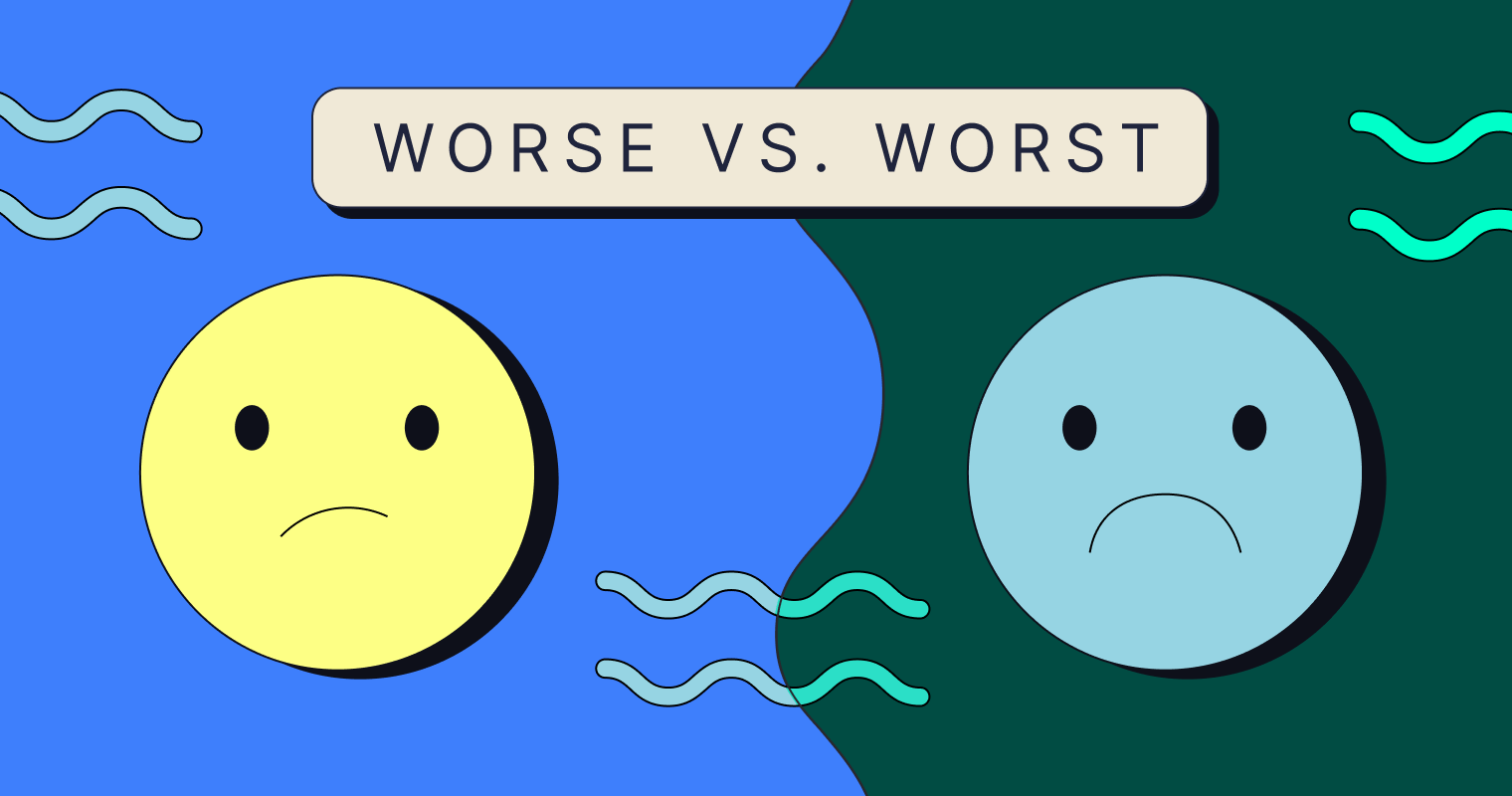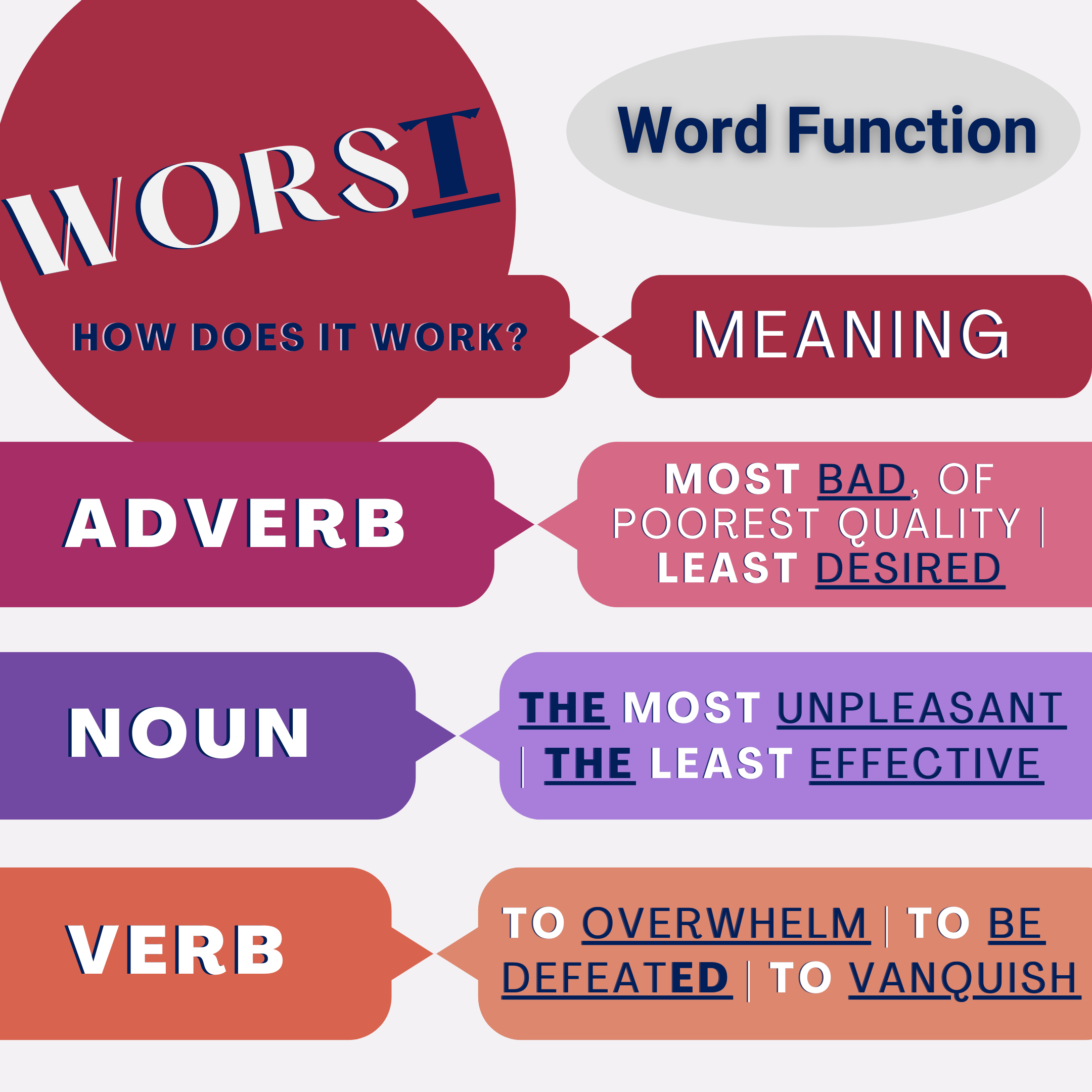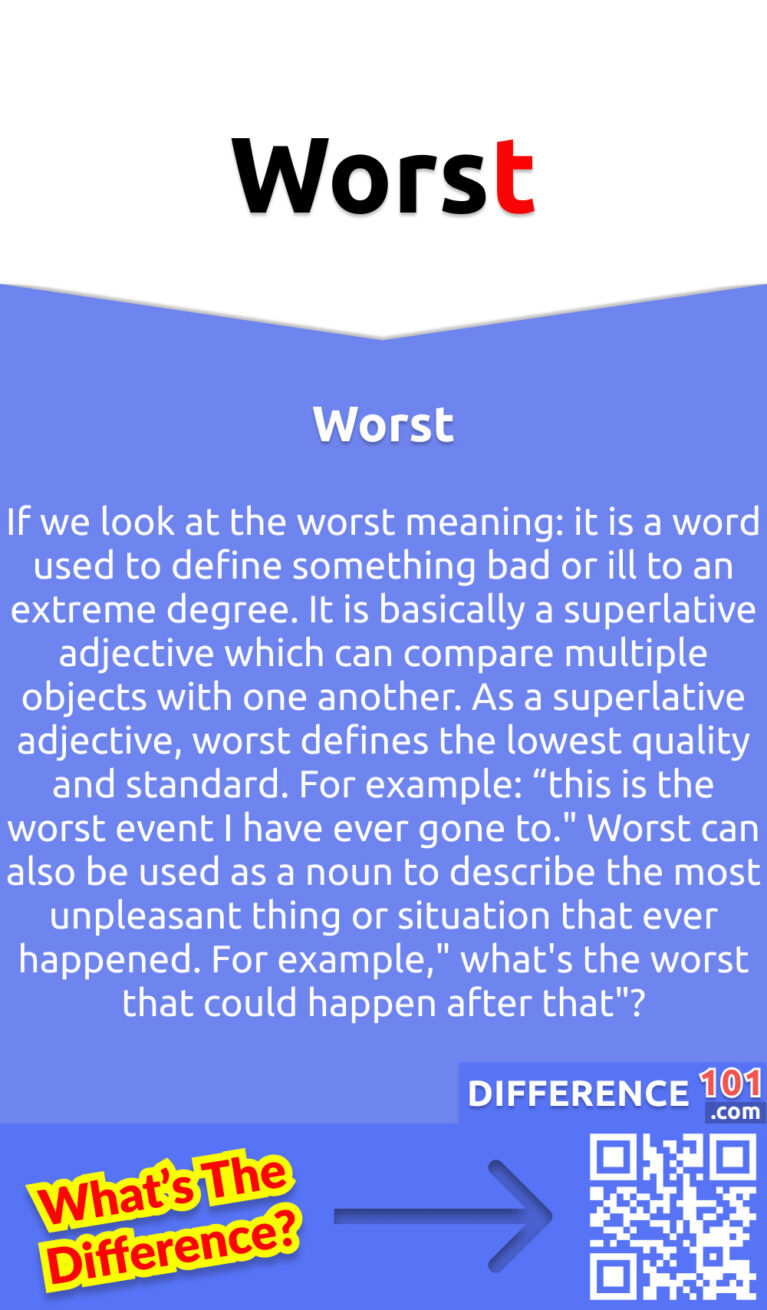What Are The Worst Colleges: Spotting Trouble Before You Enroll
Choosing a college, you know, is a pretty big decision for anyone hoping to get a good education. It's almost like picking a path that shapes your future in many ways, and that is a truly significant step. Nobody wants to end up somewhere that just doesn't measure up, right? You want a place that supports your goals and helps you grow, not one that leaves you feeling, well, less than ready for what comes next.
For many folks, the idea of a "worst" college might seem a bit harsh, but it's a real concern, in some respects. What we mean by "worst" here, based on what we've learned, is a place that's of the lowest quality, or perhaps the most unpleasant, or just really difficult for students. It refers to something that's the least good or most inferior compared to other options out there. This could mean a lot of things, like poor teaching, limited opportunities, or even a less than ideal environment for learning and living. It's about recognizing those places that just don't offer a solid foundation.
Thinking about what are the worst colleges isn't about being negative, actually. It's about being smart and doing your homework. It’s about understanding what makes an institution fall short, so you can make a choice that truly serves you well. This guide will help you spot the red flags and, you know, understand the qualities that might make a college a less-than-ideal choice, ensuring you pick a spot where you can genuinely thrive and get the most out of your educational journey. It's really about making an informed decision for your own benefit.
Table of Contents
- Understanding What Makes a College "Worst"
- Signs That a College Might Be a Poor Choice
- How to Research and Avoid Low-Quality Institutions
- Frequently Asked Questions About Colleges
Understanding What Makes a College "Worst"
When we talk about what are the worst colleges, we're not just throwing around harsh words, you know. We're looking at places that, in some way, truly fail to deliver on the promise of higher education. As our understanding suggests, "worst" means something that is of the lowest quality, or perhaps the most undesirable, or even just really bad in its overall standard among others. It describes something that is, basically, "most bad" or "most inferior" in its category. This definition helps us pinpoint exactly what we should be cautious about when considering a school.
A college being "worst" can show up in many ways, too. It might mean that the educational experience itself is poor, perhaps with outdated courses or teachers who aren't very engaged. It could also mean that the school's financial situation is shaky, which can affect everything from campus resources to whether the school even stays open. Then there's the outcome for students; if graduates struggle to find jobs or are buried under debt with little to show for it, that's a pretty strong indicator of a low-quality experience. It's about the entire package, really, and how it impacts a student's future.
So, identifying what are the worst colleges isn't just about academic rigor, you see. It's about the overall value and experience a student gets. Is the institution providing a valuable service? Is it preparing students for life after graduation? Or is it, rather, leaving them in a worse position than when they started? These are the sorts of questions that guide our understanding of what makes a college truly fall into that "worst" category. It's a comprehensive look at what a school offers, or, quite often, what it fails to offer.
Signs That a College Might Be a Poor Choice
Spotting a college that might be a poor choice, you know, involves looking for a few key indicators. It's not always obvious from the glossy brochures, that's for sure. But if you know what to look for, you can often pick up on the signals that suggest a school might be of the lowest quality or, perhaps, just not a good fit for most students. These signs can cover everything from what happens in the classroom to what happens after graduation, and they're worth paying attention to, very much so.
One major area to consider, as a matter of fact, is a school's accreditation status. Accreditation is basically a stamp of approval from an independent body that says a school meets certain quality standards. If a college isn't properly accredited, or if its accreditation is probationary, that's a huge red flag. It means your degree might not be recognized by employers or other universities, which, you know, defeats the whole purpose of getting an education. It's a fundamental aspect of legitimacy, really, and without it, you're pretty much on shaky ground.
Another thing to watch out for, in a way, is a high student loan default rate. This statistic tells you how many students who borrowed money for that school aren't able to pay it back. A very high default rate can suggest that graduates aren't finding good jobs that allow them to manage their debt, which points to a low return on investment for the education received. It's a pretty stark indicator, honestly, of whether a college is truly preparing its students for financial success after they leave. This really shows the practical impact of the education they offer.
Academic Quality and Learning Environment
When you're thinking about what are the worst colleges, the academic side is, naturally, a big piece of the puzzle. A college that's struggling academically might have a lot of part-time instructors, for example, who are less invested in the school community. You might also find very large class sizes, making it hard to get individual attention from professors. This can really impact your learning experience, obviously, and make it difficult to engage deeply with the material. It's about the quality of instruction you receive, and that's pretty central to your education.
Another sign of a less-than-ideal learning environment is a lack of up-to-date resources. This could mean outdated textbooks, old lab equipment, or a library that doesn't have current research materials. In today's world, you know, access to modern tools and information is pretty important for a good education. If a school isn't keeping pace with these things, it suggests they might be of the lowest quality in terms of providing a relevant and effective education. It really impacts how well you can learn and prepare for your chosen field.
Low graduation rates are also a pretty strong signal, you see. If a lot of students start at a college but don't finish their degrees there, it could mean that students are unhappy with the education, or they're not getting the support they need to succeed. It might also point to a curriculum that isn't engaging or, perhaps, too difficult without proper guidance. This indicates that the college might be failing to deliver on its core mission of helping students complete their studies, and that's a very big deal for prospective learners.
Financial Stability and Student Outcomes
The financial health of a college, honestly, is a huge factor in determining if it might be one of what are the worst colleges. A school that's financially unstable might suddenly cut programs, reduce services, or even, in extreme cases, close its doors entirely. This would leave students in a very difficult spot, perhaps with credits that don't easily transfer or a degree from a defunct institution. It's a risk that's, quite frankly, not worth taking for most people. You want a school that's going to be around for your entire educational journey and beyond.
Looking at student outcomes is also incredibly important, you know. How well do graduates from a particular college do in the job market? Are they finding jobs in their field? Are they earning enough to pay back their student loans? If a college consistently produces graduates with high unemployment rates or low earnings, it suggests that the education they're providing isn't translating into real-world success. This is, basically, the practical measure of a college's value, and it's something every prospective student should seriously consider.
A college that's considered "worst" in terms of student outcomes might also have a very low return on investment, you see. This means that the cost of attending the school, including tuition and living expenses, is much higher than the financial benefit you get from the degree. It's about whether the education is a good investment of your time and money. If it's leaving you with a lot of debt and few job prospects, then, quite simply, it's not a good deal at all. This is where the "most poor" or "lowest quality" aspect of "worst" really comes into play for your finances.
Student Support and Campus Life
A college that's struggling to provide good student support services, you know, can also fall into the category of what are the worst colleges. This includes things like academic advising, career counseling, and mental health services. If these resources are scarce, or if the staff isn't very helpful, students can feel lost and unsupported. It's pretty hard to succeed when you don't have the guidance you need, and that's a very real problem for many learners. A good college, quite simply, wraps its arms around its students and helps them navigate their challenges.
The overall campus environment and student life are also pretty significant, you see. A "worst" college might have a campus that feels unsafe, or perhaps unwelcoming. There might be a lack of extracurricular activities, or just a general feeling of apathy among the student body. This can really affect your overall experience and sense of belonging. College isn't just about classes; it's also about personal growth and building a community, and if that's missing, it can make the whole experience feel pretty isolating. It's about more than just academics, it's about the whole picture.
Poor communication from the administration, in a way, is another warning sign. If the college leadership isn't transparent, or if they're slow to address student concerns, it can create a very frustrating atmosphere. This suggests a lack of care for the student body and can make it difficult to resolve problems. A college that truly cares about its students, you know, will listen and respond, and that's a very basic expectation for any reputable institution. It's about feeling heard and respected as a member of the college community.
How to Research and Avoid Low-Quality Institutions
Avoiding what are the worst colleges, you know, really comes down to doing your homework before you commit. It’s not enough to just look at a school's website or read a few reviews. You need to dig a bit deeper to make sure you're making a truly informed choice. This involves looking at various sources of information and, frankly, trusting your gut feelings too. It's about being proactive in your search, very much so.
First off, always check a college's accreditation status, you see. You can usually find this information on the school's website, but it's always a good idea to cross-reference it with a reliable, independent source. For example, you can visit the Council for Higher Education Accreditation (CHEA) website, which lists recognized accrediting organizations. This is, basically, your first line of defense against unaccredited or questionable institutions, and it's a very important step to take. It ensures the legitimacy of your future degree.
Next, look at data on student outcomes, you know. Websites like the U.S. Department of Education's College Scorecard offer a wealth of information on graduation rates, post-graduation earnings, and student loan default rates for almost every college. This data can give you a pretty clear picture of how well students are doing after they leave a particular institution. It helps you understand the return on investment for your education, and that's something you should seriously consider. Learn more about college outcomes on our site, too, for more details.
Visiting campuses, if you can, is also incredibly helpful, in a way. A campus visit allows you to get a feel for the atmosphere, talk to current students, and see the facilities firsthand. You can observe the condition of the buildings, the availability of resources, and the general mood of the student body. Sometimes, you know, your instincts will tell you a lot about a place that statistics alone can't convey. It's about experiencing the environment for yourself and seeing if it feels right. You might also want to link to this page for tips on campus visits.
Reading student reviews and talking to alumni can also provide valuable insights, you see. Websites like Niche or Unigo gather student reviews, which can give you a candid look at the pros and cons of a college from the perspective of those who have actually attended. Alumni can tell you about their experiences after graduation, including how well their degree prepared them for their careers. This personal feedback is, quite often, very illuminating and can highlight issues that official data might miss. It gives you a real-world perspective on the college experience.
Finally, compare colleges that you're considering, you know, side-by-side. Don't just focus on one or two factors. Look at the whole picture: academics, cost, student support, campus environment, and post-graduation success. By comparing multiple institutions, you can get a better sense of what a good quality education looks like and, consequently, what might make a college fall short. It's about weighing all the different aspects to make the best possible choice for your future, and that's a pretty smart approach to take, really.
Frequently Asked Questions About Colleges
What are the common signs of a low-quality college?
Common signs often include low graduation rates, a lack of proper accreditation, very high student loan default rates, and, you know, poor student-to-faculty ratios. You might also notice outdated facilities, a limited range of academic programs, or a general lack of support services for students. These factors, basically, point to an institution that might not be providing a valuable educational experience, and that's something to be very aware of when you're looking at schools.
Can attending a low-quality college hurt my career prospects?
Yes, absolutely, it can, you see. A degree from a low-quality college might not be recognized by employers or graduate schools, making it harder to find a job or continue your education. You could also end up with significant student debt without the earning potential to pay it back, which, honestly, can create long-term financial struggles. It's a pretty serious consideration, as the value of your degree is very much tied to the reputation and quality of the institution that awarded it.
How can I find reliable information to evaluate colleges?
You can find reliable information by checking official sources like the U.S. Department of Education's College Scorecard for data on outcomes and costs. Also, look at accreditation bodies like CHEA for status verification. Reading reviews from current students and alumni on reputable education sites can also provide personal insights. It's about gathering information from various trustworthy sources to get a full picture, you know, and not just relying on one viewpoint, which is pretty important for making a good decision.

301 Moved Permanently

worse vs worst what is the difference?

Worse vs. Worst: 7 Key Differences, Pros & Cons, Examples | Difference 101